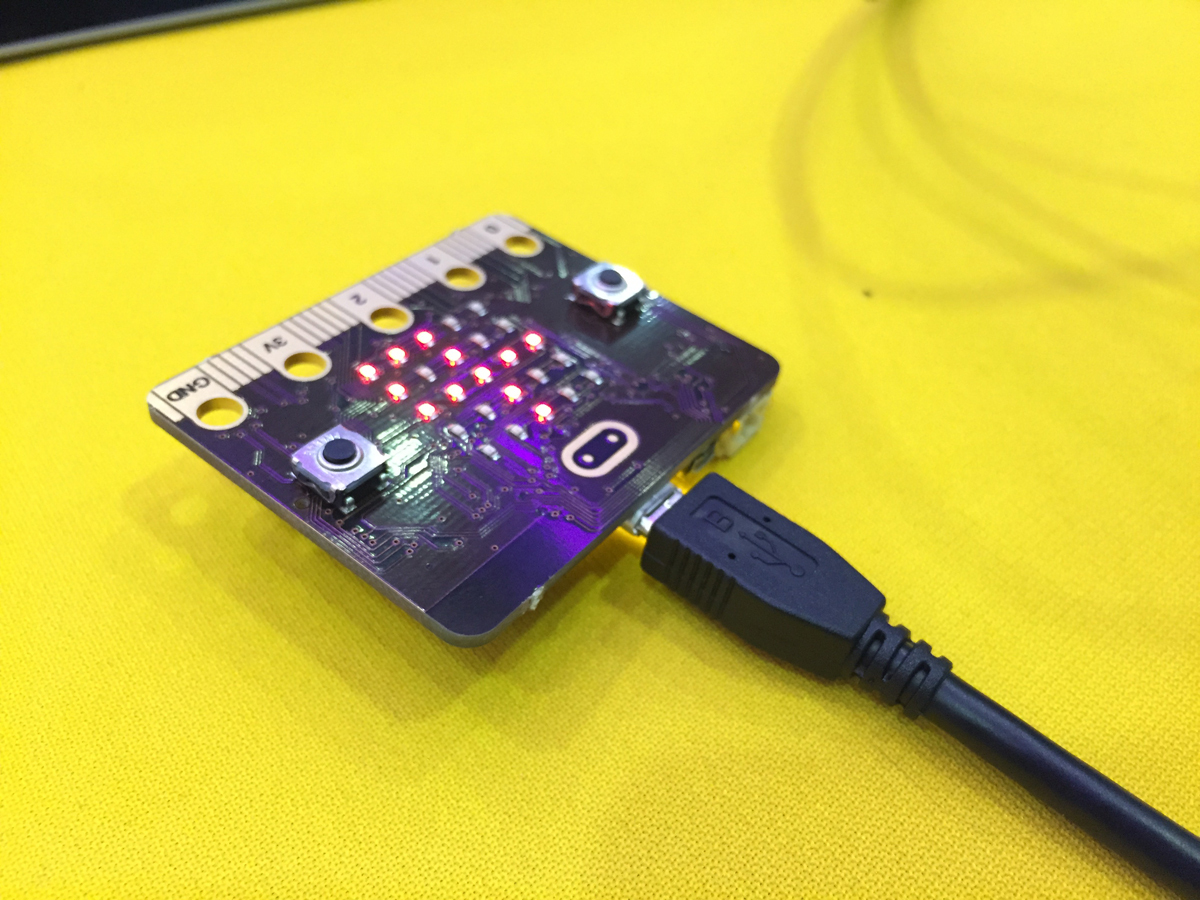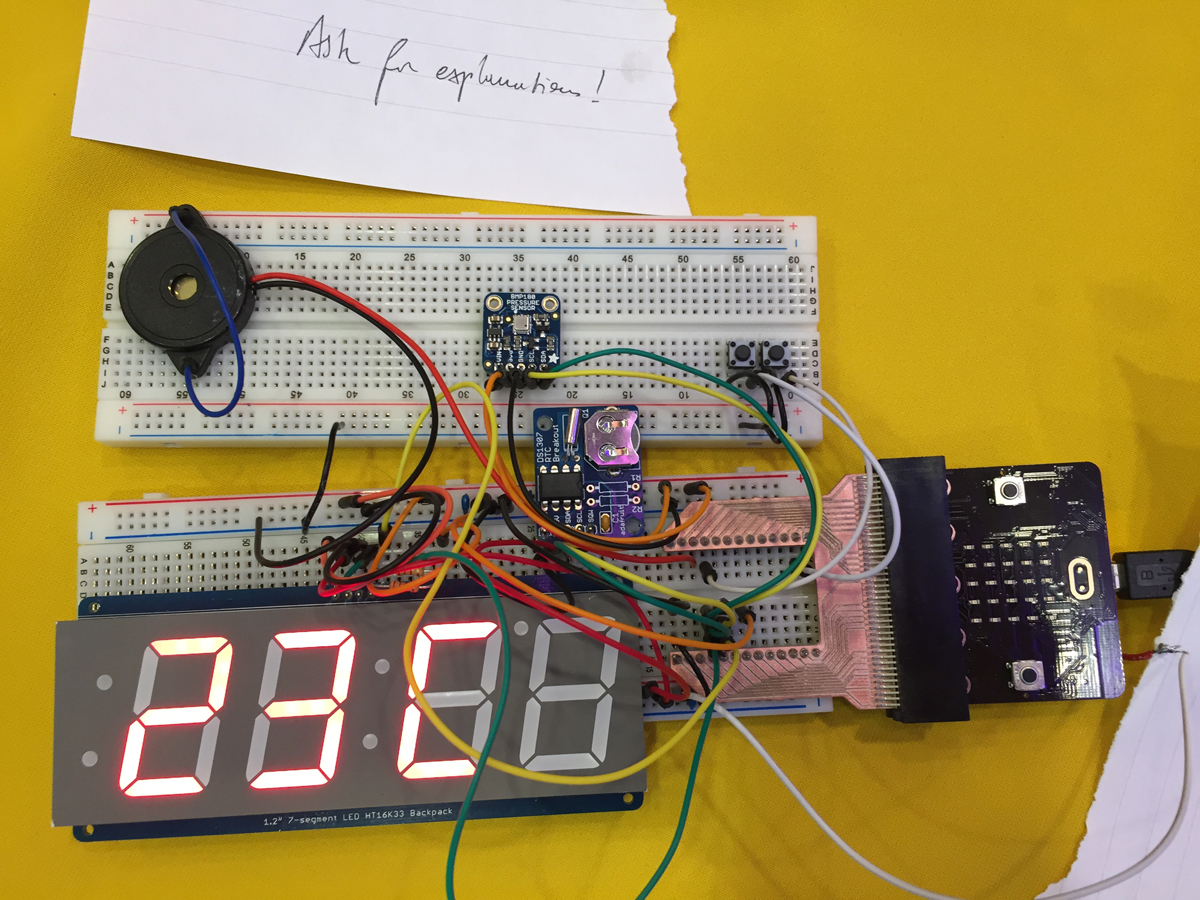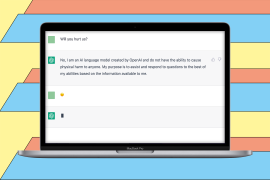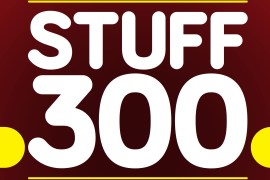BBC’s micro:bit aims to be every bit as revolutionary as the original Micro
This biscuit-sized computer will have a million schoolkids coding by October
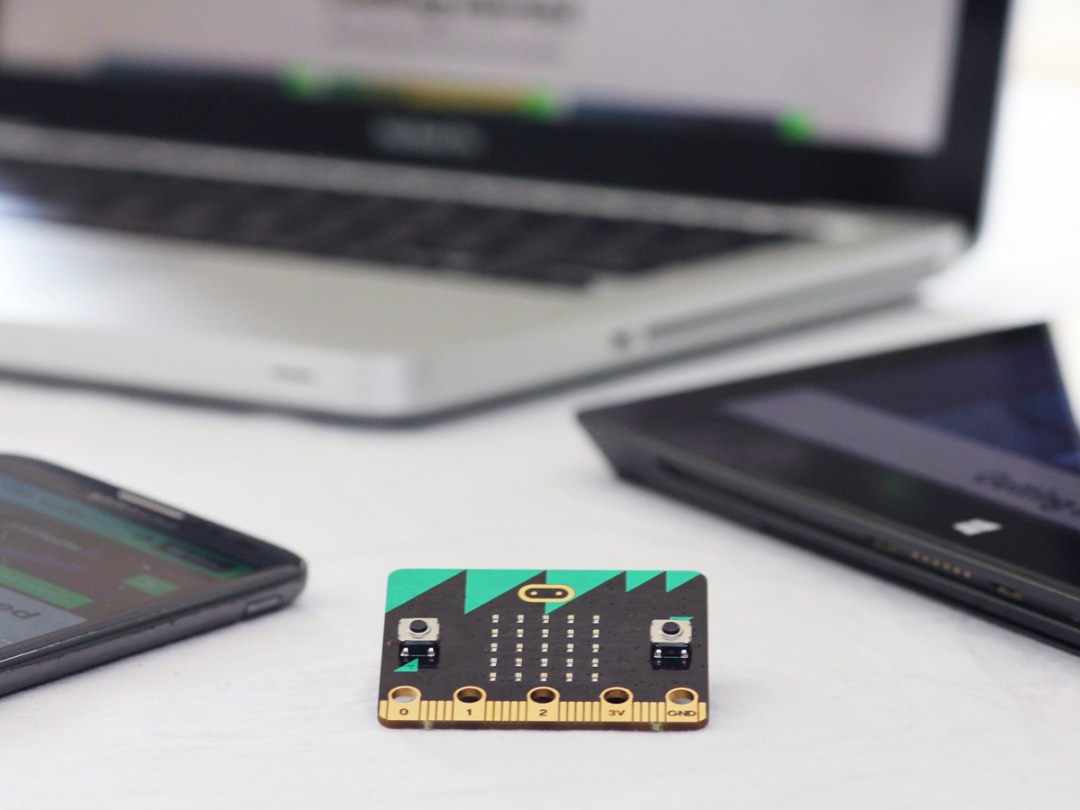
The original BBC Micro was arguably the most influential computer ever built.
The processor developed for it by Acorn computers was the foundation of ARM, the world’s largest semiconductor manufacturer. The simple programming language it introduced gave 80 percent of the UK’s schoolkids an understanding of what ‘code’ is, and of the possibilities that come from building your own repeatable commands and running them on a machine. By clearly and carefully introducing youngsters to the language of devices, it created a generation of engineers, game developers, inventors and entrepreneurs.
The BBC is now looking replicate that success with a new machine that is, thanks to three decades of Moore’s Law, 18 times more powerful, 70 times smaller and 817 times lighter. And where the original Micro was an expensive device that had to stay locked in the school’s Computer Lab away from thieves, stray footballs and leaking Mr Freeze lollies, the new micro:bit is cheaper and hugely more numerous – a million will be given away this autumn, with every child in Year Seven receiving a micro:bit to keep.
So what does it do?
The micro:bit is a small, flat board, roughly the size of a custard cream biscuit but thinner, with 25 red LEDS and two programmable buttons on the front and components on the back. It’s powered by batteries or microUSB, and connects either by wire or low-energy Bluetooth. There’s an accelerometer for sensing motion and a magnetometer for registering direction. The bottom side is made up of connectors, with five large input/output rings that let you connect it to things using crocodile clips or soldered wires.
The really special thing about the micro:bit is the simplicity with which it can be connected to other things and programmed. The development environment is web-based and uses simple code blocks to avoid the kind of errors that plague novice programmers, but it’s also designed to evolve as you learn: from the basic Block Editor you can graduate to the more complex Touch Develop environment, and from there you can take off into proper programming languages such as JavaScript, Python and C++. It’ll also play nice with other hardware, including Raspberry Pi, Arduino, Littlebits and more.
What can you make with it?
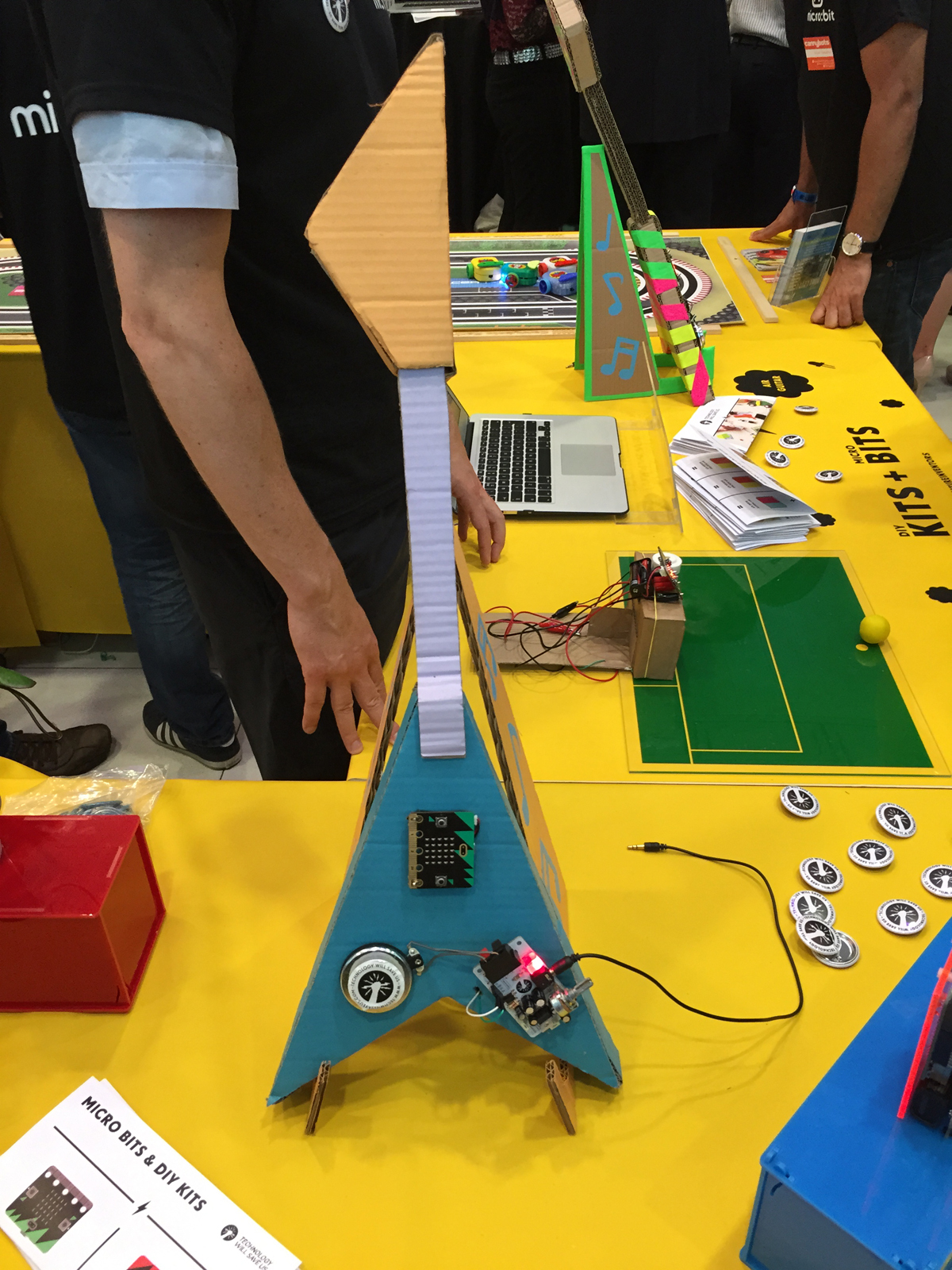
At the BBC’s launch event today we saw micro:bits controlling mini robots and simple games, running an automatic plant-watering system, lighting up some smart clothing, working as a remote shutter for a phone camera and controlling a game of Flappy Bird. We even saw digital instruments (see above) and games created using kits from Technology Will Save Us.
“But I’m not in Year Seven!”
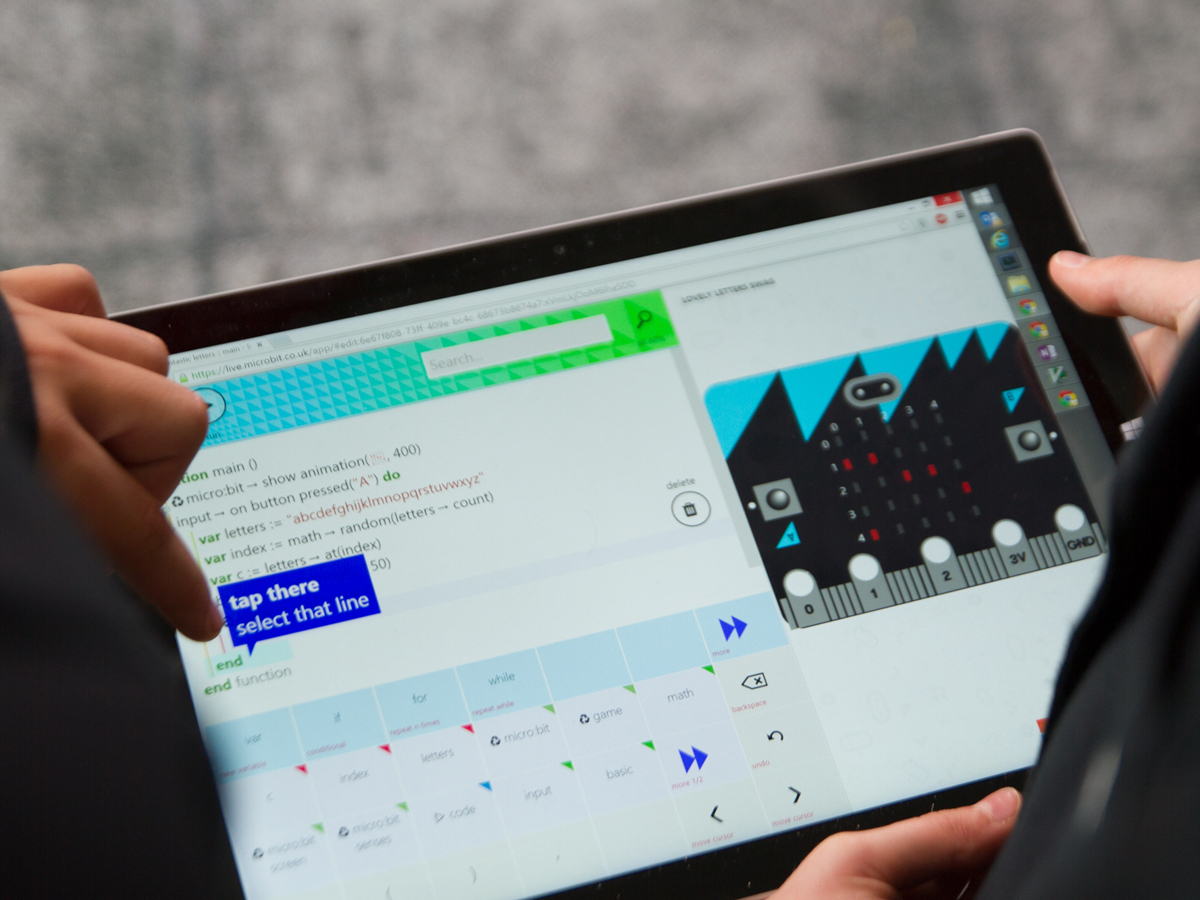
Neither are we, but we’re still planning on getting our hands on some micro:bits soon, thanks to the nonprofit company that will begin selling them shortly after the first million go out to schoolkids. What’s more, because the hardware, OS and programming languages are all open-source, it’s highly likely that others will begin selling micro:bits too.
